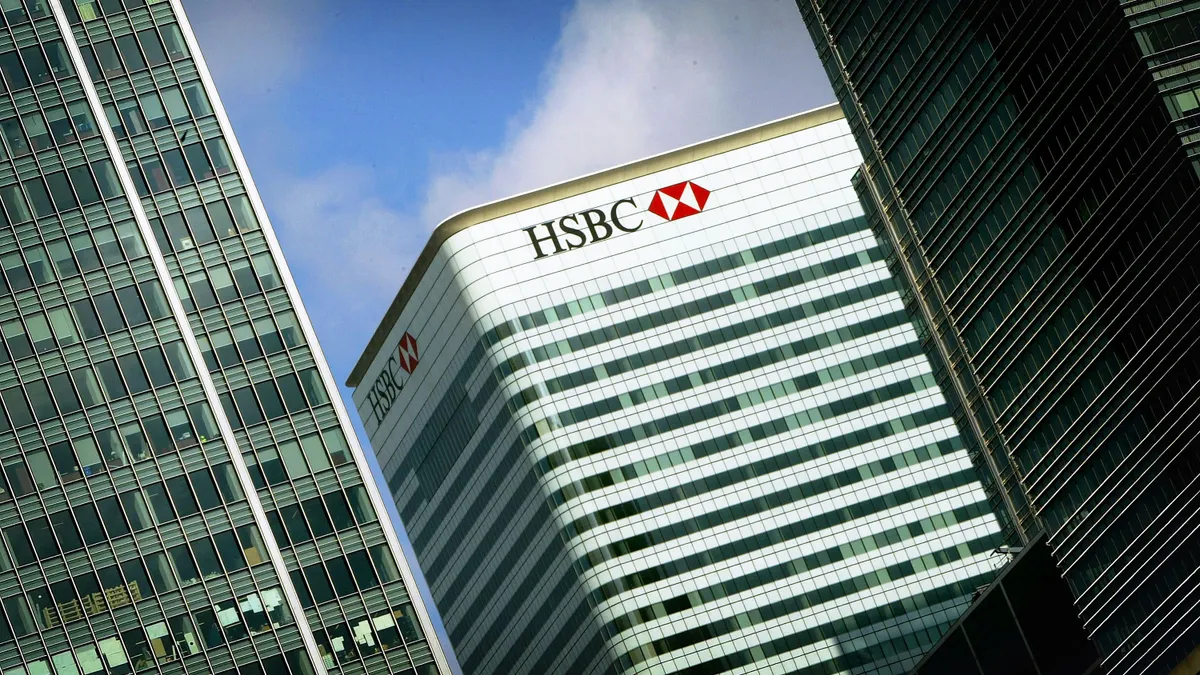For about a year and a half, the sight will be right out of challenger banks’ vision boards: Revolut’s logo will sit high above London’s Canary Wharf, two or three buildings away from the U.K.’s incumbent behemoth, HSBC.
Revolut announced it has signed a 10-year lease to relocate its global headquarters to a newly refurbished building in the center of east London’s financial district.
The move isn’t far: The fintech’s office now is in the northwest corner of the district. But spatially, the transition is significant: Revolut, beginning in May 2025, will take up the top four floors of the 14-story YY London building.
With the change, Revolut will occupy 40% more office space than it does now. Incidentally, that mirrors a 40% boost in headcount, compared with 2023 figures, that Revolut expects to complete by the end of this year.
The move comes at a time when banks and other companies with prime real estate are looking to cut costs as more employees work remotely. HSBC announced last June that it plans to leave its Canary Wharf headquarters in late 2026 in favor of a smaller, more central location in the city. Other banks, such as Barclays and Morgan Stanley, meanwhile, have committed to staying in Canary Wharf.
Indeed, if Revolut’s plan for signage on the building passes muster, the challenger bank’s logo will face the offices of JPMorgan Chase and Morgan Stanley.
“For our teams at Revolut, this will be much more than an office,” Francesca Carlesi, CEO of Revolut’s U.K. operations, said in a statement. “Over the course of the next decade, it will be a space to co-create, innovate and work productively in, but also a new creative environment to attract talent across engineering and banking fields. Working at Revolut will be for those wishing to be at the center of the U.K.’s most innovative financial sector.”
Shobi Khan, CEO of the property developer Canary Wharf Group, noted that Revolut’s journey began in the district nearly a decade ago.
“From their humble beginnings in 2015, when they started out with just two desks at Level39, our tech incubator … Revolut's phenomenal rise is a powerful testament to the extraordinary environment we have created,” Khan said.
Canary Wharf developers, who have felt pain points from reduced office demand and dropping property valuations, have sought to revitalize the area. The building that now houses HSBC could become hotel or apartment space after the bank leaves, sources told Reuters last month.
For Revolut, though, the new office bolsters the fintech’s commitment to the U.K., Carlesi said.
But that commitment comes as Revolut continues its three-year wait for regulators, including the Bank of England and the Financial Conduct Authority, to approve its application for a U.K. banking license. A license would allow the fintech to launch lending products such as credit cards and personal loans. But the process has stalled after auditors warned they could not independently verify three-quarters of the €636 million in revenue Revolut belatedly reported from 2021.
Still, the visual of Revolut’s name on a high-rise alongside the likes of global systemically important banks can be seen as a feather in the fintech’s cap.
The flip side of that, though, may be the argument that challenger banks are welcome to occupy the office space after larger incumbents deem it no longer worth their while.
That, too, can be seen as a reflection of an evolving business in which HSBC, globally, has reduced its footprint in retail banking — notably, through the $10 billion sale of its Canadian footprint to the Royal Bank of Canada, as well as its spinoff of 90 U.S. branches to Citizens and Cathay Bank. (It should be noted, though, that HSBC has held onto several locations in North America and turned them into international wealth centers.)
In that sense, it could be argued HSBC is letting market players like Revolut have retail — and Canary Wharf, for that matter. As long as it gets to keep the ultra-rich.











